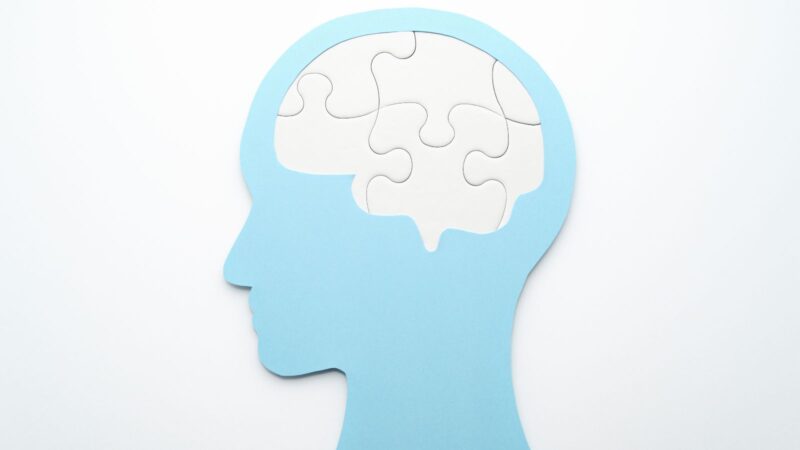
Mental health care is undergoing a transformative shift, as innovative technologies emerge to provide more accessible, personalized, and effective solutions. This article explores the top 5 cutting-edge technologies that are revolutionizing the way we approach mental health treatment and management. From AI-powered chatbots to immersive virtual reality therapies, these advancements are poised to redefine the landscape of mental healthcare delivery.
The integration of digital therapeutics, wearable devices, and mental health monitoring systems is revolutionizing the way we approach mental health care. These technologies leverage the power of augmented reality, virtual reality, and artificial intelligence to deliver innovative, personalized, and evidence-based treatments directly to patients.
Key Takeaways
- Innovative technologies are transforming mental health care, making it more accessible and effective.
- Digital therapeutics, virtual reality therapy, and AI-powered chatbots are among the top technologies reshaping the industry.
- Wearable devices and mental health monitoring systems provide valuable insights into an individual’s mental and emotional state.
- The integration of these technologies is poised to revolutionize the way we approach, access, and deliver mental health treatment.
- Personalized, evidence-based treatments are becoming more readily available through these cutting-edge solutions.
Embracing Digital Therapeutics for Mental Health
The field of mental health care is undergoing a remarkable transformation, with digital therapeutics at the forefront of this revolution. These software-based interventions are revolutionizing the way patients receive personalized, evidence-based treatments for a wide range of mental health conditions, from depression and anxiety to substance abuse and post-traumatic stress disorder.
Augmented Reality for Anxiety Management
Augmented reality (AR) therapy is emerging as a powerful tool for managing anxiety disorders. By integrating virtual elements into the patient’s real-world environment, AR-based interventions can help individuals confront and overcome their fears in a safe, controlled setting. This innovative approach allows for gradual exposure and desensitization, empowering patients to develop coping mechanisms and improve their overall mental well-being.
Virtual Reality Exposure Therapy
Virtual reality (VR) therapy is another cutting-edge digital therapeutic that is making significant strides in the mental health field. VR exposure therapy immerses patients in simulated environments, enabling them to confront and process their fears and traumas in a safe, immersive setting. This technology has proven particularly effective in the treatment of conditions like post-traumatic stress disorder (PTSD), phobias, and anxiety disorders, offering a powerful alternative to traditional in-vivo exposure methods.
Chatbots and AI-Powered Counseling
The integration of artificial intelligence (AI) and chatbot technology is revolutionizing the delivery of mental health support. AI-powered chatbots can engage in personalized, empathetic conversations with patients, providing 24/7 access to mental health resources, self-care strategies, and even guided therapeutic exercises. These intelligent digital assistants can supplement traditional therapy, offering a convenient and accessible entry point for individuals seeking mental health support.
Among these innovative solutions, substance abuse treatment software stands out as a crucial tool for managing and treating addiction, offering features that enhance patient care and streamline administrative processes.
Wearable Devices and Mental Health Monitoring
The integration of wearable devices and mental health monitoring is transforming how we approach personal well-being. Cutting-edge biosensors embedded in smartwatches, fitness trackers, and other wearable devices can now measure various physiological indicators, providing valuable insights into an individual’s mental and emotional state.
Biosensors for Mood Tracking
Advanced biosensors in wearable devices can track various biometrics, such as heart rate variability, skin conductance, and even sweat levels, to detect fluctuations in mood and emotional states. By monitoring these real-time mental health tracking data points, individuals can gain a deeper understanding of their emotional patterns and triggers, empowering them to proactively manage their mental health.
Sleep Monitoring and Improvement
Wearable devices equipped with sophisticated sleep monitoring capabilities can provide detailed insights into an individual’s sleep quality, duration, and cycles. This data can be used to identify sleep-related issues and implement personalized strategies to improve sleep, which is crucial for maintaining overall mental wellbeing.
Conclusion: Revolutionizing Mental Health Care
The integration of innovative mental health technology into the field of mental health care is poised to revolutionize the way we approach, access, and deliver treatment. From AI-powered chatbots and immersive virtual reality therapies to cutting-edge wearable devices and transformative digital therapeutics, these groundbreaking solutions are making mental health care more accessible, personalized, and effective than ever before.
As we embrace this digital transformation in mental health care, the future holds great promise. Patients will have greater access to tailored, personalized treatment options, empowering them to take a more active role in managing their mental well-being. Clinicians, in turn, will be equipped with data-driven insights and intelligent tools to provide more informed, efficient, and impactful care.
The convergence of technology and mental health represents a paradigm shift, one that will continue to evolve and shape the future of mental health care. By harnessing the power of these innovative solutions, we can break down barriers, improve outcomes, and ultimately, elevate the overall mental health and well-being of individuals and communities worldwide.
FAQ
What are the Top 5 Technologies Revolutionizing Mental Health Care?
The top 5 technologies revolutionizing mental health care include digital therapeutics, augmented reality for anxiety management, virtual reality exposure therapy, chatbots and AI-powered counseling, and wearable devices for mental health monitoring.
How are Digital Therapeutics Transforming Mental Health Treatment?
Digital therapeutics, or software-based interventions, are revolutionizing mental health care by providing personalized, evidence-based treatments directly to patients. These technologies leverage the power of augmented reality, virtual reality, and artificial intelligence to deliver innovative therapies.
What are the Benefits of Using Augmented Reality for Anxiety Management?
Augmented reality therapy can help individuals with anxiety disorders by allowing them to confront their fears in a controlled, virtual environment. This approach helps patients overcome their anxieties in a safe and supportive setting.
How Does Virtual Reality Exposure Therapy Work for Mental Health Treatment?
Virtual reality exposure therapy immerses patients in simulated environments that trigger their specific fears or phobias. This approach allows therapists to gradually expose patients to their sources of anxiety, helping them develop coping mechanisms and overcome their challenges.
What are the Advantages of Using Chatbots and AI-powered Counseling for Mental Health Support?
Chatbots and AI-powered counseling solutions provide accessible, around-the-clock mental health support. These technologies can offer personalized advice, monitor mood and behavior, and connect individuals with professional resources, making mental health care more widely available.
How do Wearable Devices Contribute to Mental Health Monitoring and Improvement?
Wearable devices, such as smartwatches and fitness trackers, are equipped with biosensors to measure physiological indicators like heart rate variability, sleep patterns, and sweat levels. These insights can provide valuable data on an individual’s mental and emotional state, enabling more personalized intervention and treatment.







